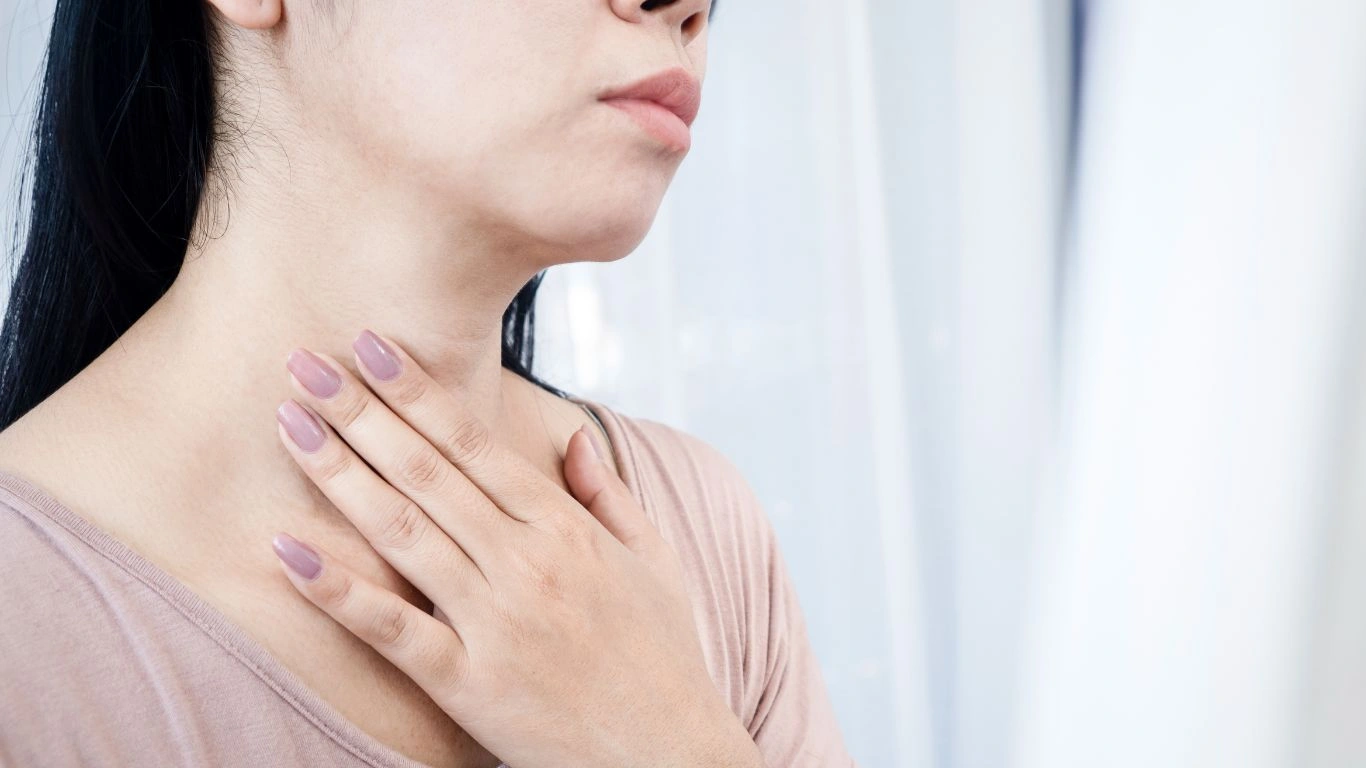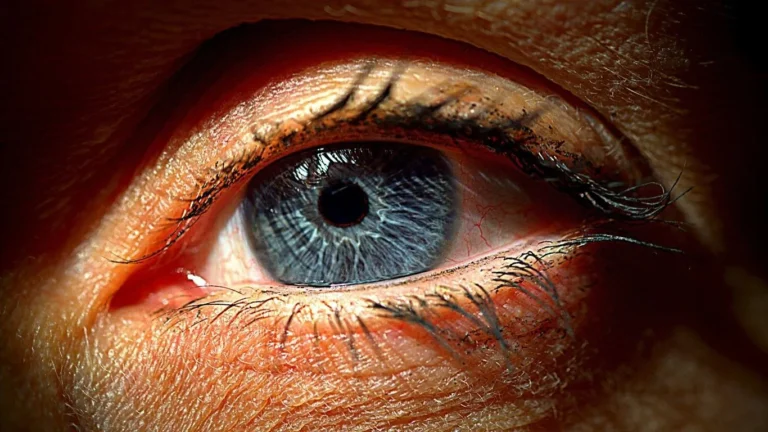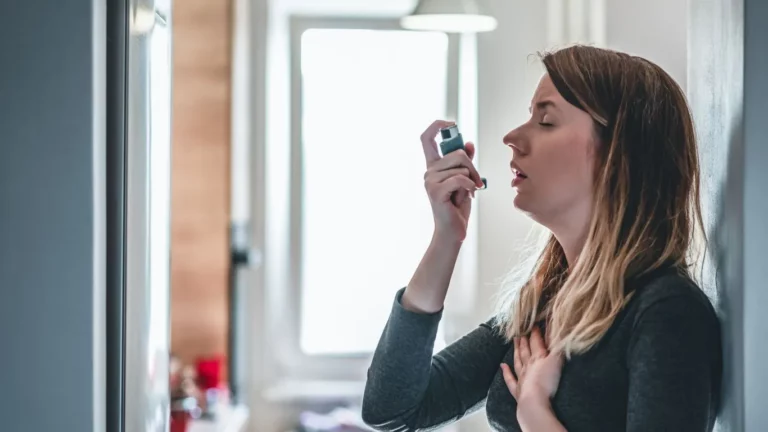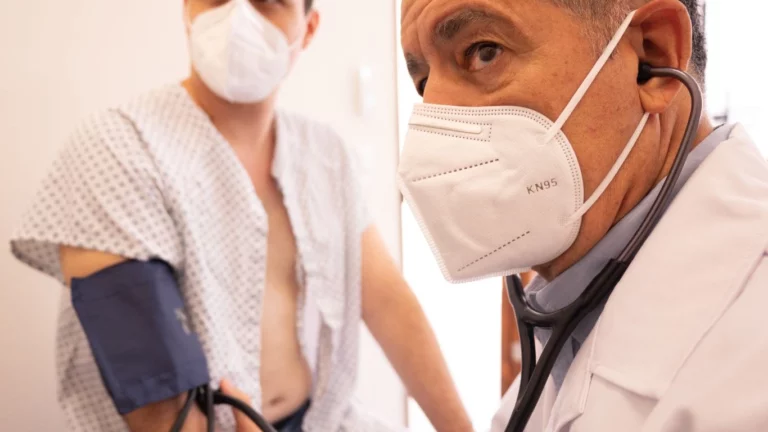GERD and Sleep Apnea Connection – How They’re Linked and What You Can Do About It
Discover the link between GERD and sleep apnea, how they interact, and what you can do to manage both conditions for better health and quality of life.
Gastroesophageal reflux disease (GERD) and sleep apnea are two common health issues that can cause serious discomfort and interfere with your quality of life. What many people don’t realize is that these two conditions are often connected. In this article, we’ll dive into the connection between GERD and sleep apnea, explore their symptoms, causes, and share effective treatment strategies for managing both.

What is GERD and How Does It Affect Your Health?
GERD, or gastroesophageal reflux disease, is a condition where stomach acid or bile irritates the food pipe lining. It happens when the lower esophageal sphincter (LES), a muscle at the bottom of your esophagus, doesn’t close properly. This allows stomach contents to flow backward (reflux), causing symptoms like heartburn, chest pain, regurgitation, and even difficulty swallowing.
What is Sleep Apnea and Why Should You Care?
Sleep apnea is a sleep disorder characterized by pauses in breathing or shallow breaths during sleep. These pauses can last for a few seconds to minutes and occur many times throughout the night. The most common type, obstructive sleep apnea (OSA), happens when the throat muscles relax too much, blocking the airway. The result is snoring, gasping for air, and disrupted sleep, leading to daytime fatigue and other serious health risks like high blood pressure, heart disease, and stroke.

The Link Between GERD and Sleep Apnea
At first glance, GERD and sleep apnea may seem like unrelated conditions, but they are more connected than you might think. Studies show that individuals with sleep apnea are at a higher risk of developing GERD, and vice versa. Here’s why:
Increased Pressure on the Stomach
When you sleep, especially in the back position, the muscles in your body relax, and your airway can become obstructed, leading to sleep apnea. When this happens, it increases pressure in the chest, which can push stomach acid upward into the esophagus. This reflux of acid can trigger GERD symptoms, causing heartburn, coughing, and even chest pain.
Disrupted Sleep and GERD Symptoms
On the flip side, GERD can worsen sleep apnea symptoms. People with GERD often experience nighttime acid reflux, which can lead to coughing, choking, or waking up gasping for air. These interruptions in sleep can exacerbate the breathing problems associated with sleep apnea, creating a vicious cycle.
Signs You Might Have Both GERD and Sleep Apnea
If you’re dealing with both GERD and sleep apnea, you might notice overlapping symptoms. Here are some common signs:
- Frequent heartburn or acid reflux at night
- Chronic fatigue or feeling unrested after a full night’s sleep
- Loud snoring or gasping for air during sleep
- Difficulty swallowing or a lump in the throat sensation
- Waking up with a dry mouth or sore throat

How to Treat GERD and Sleep Apnea Together
Managing both GERD and sleep apnea requires a multi-faceted approach. Here are some treatment options that can help alleviate symptoms for both conditions:
1. Lifestyle Changes
Both GERD and sleep apnea can benefit from lifestyle adjustments. For GERD, avoid trigger foods like spicy or fatty foods, and don’t eat large meals before bedtime. Elevating the head of your bed can help prevent acid reflux. For sleep apnea, maintaining a healthy weight, avoiding alcohol and smoking, and sleeping on your side instead of your back can reduce the severity of symptoms.
2. Continuous Positive Airway Pressure (CPAP) Therapy
CPAP therapy is the gold standard treatment for obstructive sleep apnea. A CPAP machine delivers a steady stream of air to keep your airways open during sleep, which can help reduce the frequency and severity of sleep apnea episodes. While this won’t directly treat GERD, it can reduce the airway pressure caused by sleep apnea, indirectly alleviating acid reflux symptoms.
3. Medications for GERD
Medications like proton pump inhibitors (PPIs) or H2 blockers can help reduce stomach acid production and control GERD symptoms. While these medications can provide relief, they’re not a cure, and long-term use should be monitored by a healthcare provider.
4. Surgery for Severe Cases
If lifestyle changes and medications don’t provide relief, surgery may be considered for both GERD and sleep apnea. For GERD, surgery like fundoplication can help reinforce the LES. For sleep apnea, surgical options like UPPP (uvulopalatopharyngoplasty) or Inspire therapy (a surgically implanted device) can help reduce airway blockages.
Prevention Tips for GERD and Sleep Apnea
While treatment is key to managing both conditions, prevention plays a huge role. Here are some practical tips:
- Maintain a healthy weight to reduce pressure on your stomach and airways.
- Avoid sleeping on your back to prevent airway obstruction during sleep.
- Eat smaller meals throughout the day and avoid heavy meals before bedtime.
- Practice good sleep hygiene and get enough restful sleep each night.

Conclusion
The connection between GERD and sleep apnea is real, and managing both conditions simultaneously is crucial for better health. By making lifestyle changes, using appropriate treatments like CPAP therapy, and seeking medical advice, you can significantly improve your quality of life and reduce the impact of both GERD and sleep apnea.
Appendices
References
- American Sleep Apnea Association. (2023). Sleep Apnea and GERD: A Common Connection. Read Article
- Smith, A., & Johnson, R. (2022). The Relationship Between GERD and Sleep Apnea: A Review of Clinical Studies. Journal of Sleep Research, 24(4), 230-245. Read Article
- National Institute of Health (NIH). (2024). GERD Treatment and Management. Read Article
FAQs
- Can GERD cause sleep apnea? Yes, the increased pressure from acid reflux during sleep can lead to airway obstruction, making sleep apnea worse.
- Is sleep apnea a risk factor for GERD? Yes, sleep apnea can increase the likelihood of developing GERD due to the changes in pressure and muscle relaxation during sleep.
- Can CPAP therapy help with GERD? CPAP therapy helps manage sleep apnea, and by improving airflow and reducing airway pressure, it can indirectly reduce GERD symptoms.
Disclaimer: The information provided in this article is for educational purposes only and should not replace professional medical advice. Always consult with your healthcare provider for advice tailored to your individual health needs.

Tarra Nugroho is a dedicated Nurse Practitioner with a strong foundation in family and preventive care. She brings both compassion and clinical expertise to her practice, focusing on patient-centered care and health education. As a contributor to Healthusias.com, Tarra translates medical knowledge into clear, empowering articles on topics like women’s health, chronic disease management, and lifestyle medicine. Her mission is simple: help people feel seen, heard, and informed—both in the clinic and through the content she creates. When she’s not caring for patients, Tarra enjoys weekend hikes, plant-based cooking, and curling up with a good health podcast.







